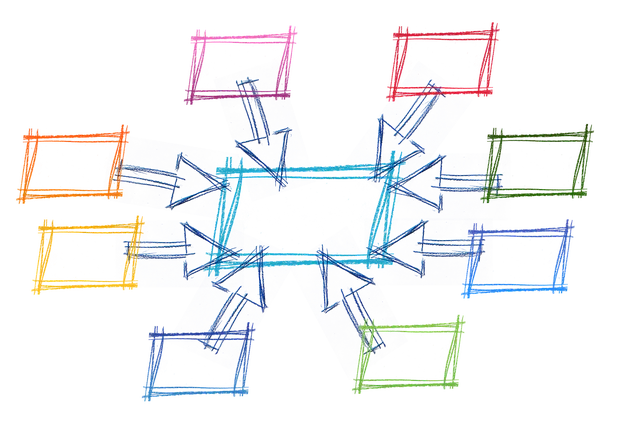
Centralization is the act and consequence of centralizing.
Centralization is the action and effect of centralizing . This verb, on the other hand, refers to bringing together several things in a common center or making different things depend on a central power .
To understand the concept of centralization, therefore, we must pay attention to the notions of center and center . Center, from the Latin centrum , can refer to the interior point that is equidistant from the limits of a figure , to the place where coordinated actions converge, to the region that concentrates the busiest points of a population, to the area where there is more bureaucratic or commercial activity. and to the place where people meet with a common purpose.
Central is that relative to or belonging to the center. The central thing can be something that is in the physical center, the place that is between two extremes or that which is the basic or essential of something.
Concept of centralization
Returning to the idea of centralization, it can be said that it is the action or initiative to bring together different things in a common center . A company can decide to centralize the telephone calls it receives and have them enter the same device so that a person in charge of the reception can then answer them and refer them accordingly. From said convergence point, calls are redirected to their respective recipients; If these are not available, this type of organization allows you to leave a message to record the contact attempt.
The centralization of power , on the other hand, is linked to the national or federal government that assumes the powers attributed to local organizations. This means that all decisions come from the same center (the national Government), so the authorities of the provinces, cities, towns, etc. They lose power and autonomy .

The process that brings together different elements in a common center is called centralization.
The contributions of Fayol and Taylor
Two fundamental figures for the development of the classical approach to administration were Henry Fayol and Frederick Winslow Taylor. The first was originally from Istanbul and strongly defended the linear organization, which is characterized by the centralization of authority; Taylor, for his part, coming from the United States and with a training based on mechanical engineering and economics, is called the father of Scientific Administration , and was inclined towards functional organization, with decentralized authority.
Let's see below the advantages and disadvantages of both concepts:
Advantages of centralization
* Decision -making power is given to a series of administrators, who have a global vision of the company;
* the greater the responsibility, the greater the training and level of knowledge;
* avoids situations in which the same work is performed twice (due to lack of communication) and reduces the operating costs inherent to decentralization;
* promotes greater specialization in certain functions and better use of skills.
Disadvantages of centralization
* often, the people in charge of making decisions do not know closely the problems they are trying to solve;
* given the distance between the parties, unnecessary delays and operating expenses usually occur;
* The more people involved in a process, the greater the likelihood of errors due to message distortion.
Advantages of decentralization
* opens the possibility of decision-making from the lowest levels of the hierarchy , which can translate into greater efficiency;
* better use of time, given the greater proximity between the parties;
* bosses must make fewer decisions and can focus on other tasks;
* Coordination costs are usually lower than in a centralized organization.
Disadvantages of decentralization
* decisions do not follow the same line , since they are made by different groups;
* It can happen that two or more people embark on the same task without the others knowing, with the consequent waste of time and money.
